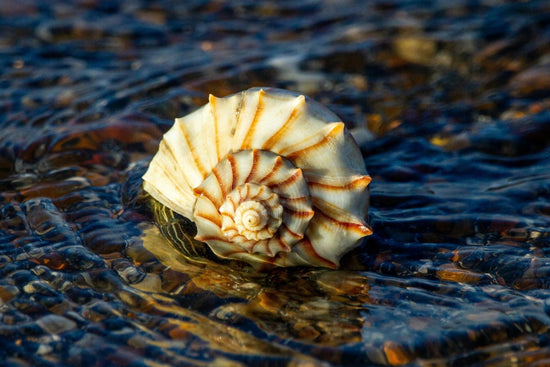May is Mental Health Awareness Month! One of the ways we can manage our mental health is to clear our minds of distracting thoughts which can help relieve anxiety, reduce stress, and improve focus. Studies show that as many as 94% of people report intrusive thoughts at some point in their lives, so here are some tips that can help everyone deal with mental clutter in healthy and helpful ways.
Keeping a Journal

This involves anything that allows you to write down stray or distracting thoughts, whether it’s in a composition notebook, a fancy journal, or just on sticky notes. A lot of times, especially when we’re busy, we end up trying to juggle many thoughts in our minds at once. This can lead to problems with focus and prioritization, and it can promote anxiety and stress. The reason keeping some kind of journal is helpful is that it allows you to write some of these thoughts down, storing them on paper, until you have the time and mental space to deal with them. It’s the mental equivalent of putting down some of the balls that you’re juggling in order to make everything easier. Our Founder & Master Crafter, Alesia, recommends the Anti-Anxiety Notebook which taught her that, "there are more than 5 emotions, negative self talk is pointless, and so much more!"

The Feelings Wheel from the Anti-Anxiety Journal
Journaling doesn’t just mean work tasks or family schedules, it can also mean more personal things; thoughts that bring up certain emotions, stray memories, or just things that interest you that you want to research further.
Writing these things down also relieves the fear that you might forget some of the things you’re trying to remember!
Mindfulness Practice
We’ve all heard so much about mindfulness that it’s become a kind of buzzword of modern self-care. It’s often associated with meditation, but you don’t have to jump into a challenging meditation practice to start with mindfulness; in fact you might become discouraged at how difficult it is at first. Keep in mind that mindfulness is in essence a way of training your mind, and it takes practice to do it well.
You don’t need a specific mindfulness practice, or any special cushions or other equipment. You don’t need to sit or pose in any specific way; in fact you want to sit in such a way that you are most comfortable, so that you’re able to relax your body and aren’t distracted by maintaining a specific pose. In fact, there are meditations specifically designed to be performed while walking!
Mindfulness practice usually involves focusing on something; like your breath, or the rhythm of your steps while walking, or even just maintaining an awareness of your body. This is harder to do than it sounds like it is, but when you find your mind wandering, all you need to do is simply redirect your attention to whatever you were focusing on, and let the thoughts pass without judgement.
Practicing mindfulness encourages relaxation, relieves stress, and in the long term improves memory and your ability to focus. It’s like strength training for your mind!
If you decide to start a mindfulness practice, we have several varieties of incense that promote relaxation and can give you a sensory experience to focus on during your practice!

Declutter Your Environment
Visual clutter begets mental clutter. It can overload the mind with stimuli, and can result in worry and stress. Additionally, a cluttered environment can cause us to create endless to-do lists in our heads, introducing more stray thoughts that can be distracting and distressing. Removing that visual clutter can give you a better chance of being able to focus on what you’re doing.
Sometimes, though, tidying up can feel overwhelming, even for small spaces. A trick to make this process less daunting is to set a timer for twenty minutes and start tidying up. This sets a limit on your efforts, so the chore doesn’t spiral into something overwhelming. If twenty minutes feels like too much, do whatever period of time seems less daunting. If necessary, set a few minutes aside every day to tidy up; make it a part of your routine.
Stop Multitasking
Multitasking is really a myth; studies show that it just doesn’t work. There are a few reasons behind this. First of all, our brains aren’t really equipped to manage multiple tasks that involve attention at one time. After all, our short term memory can only hold around 5-9 things at once, meaning that you’re going to drop some of those things that you’re trying to remember for these different tasks, and this can lead to careless mistakes and oversights.
More importantly, your attempts at multitasking are contributing to mental clutter! You end up adding more and more little thoughts until your mind becomes so loud and busy that it reduces effectiveness and increases stress levels. So eliminating multitasking and focusing on one thing at a time helps to reduce that mental clutter.
This might be difficult to do at first. Our work habits, our many obligations, and all of the streams of information that we’re exposed to daily can make us feel like we need to multitask in order to handle it all. But something as simple as turning your phone off while you work on something can really help.
A Note On Intrusive Thoughts
While we all experience distracting or intrusive thoughts sometimes, there are points at which these thoughts become harmful. If you experience thoughts that are obsessive or disturbing, or if the distraction negatively impacts your work and personal life, you might want to consult with a mental health professional. Many types of mental illness can include intrusive thoughts as a symptom, including but not limited to depression, anxiety, obsessive-compulsive disorder, and bipolar disorder. If you feel like you’re experiencing intrusive thoughts in a harmful way, it’s best to talk to a professional.
If these thoughts are about hurting yourself, you can contact the National Suicide Prevention Lifeline at 1-800273-8255. If you think you might be experiencing any mental health crisis, the Substance Abuse and Mental Health Services Administration can help you find resources and get help.





1 comment
Thank you for doing/sharing this information. I’m finding it quite helpful 💜